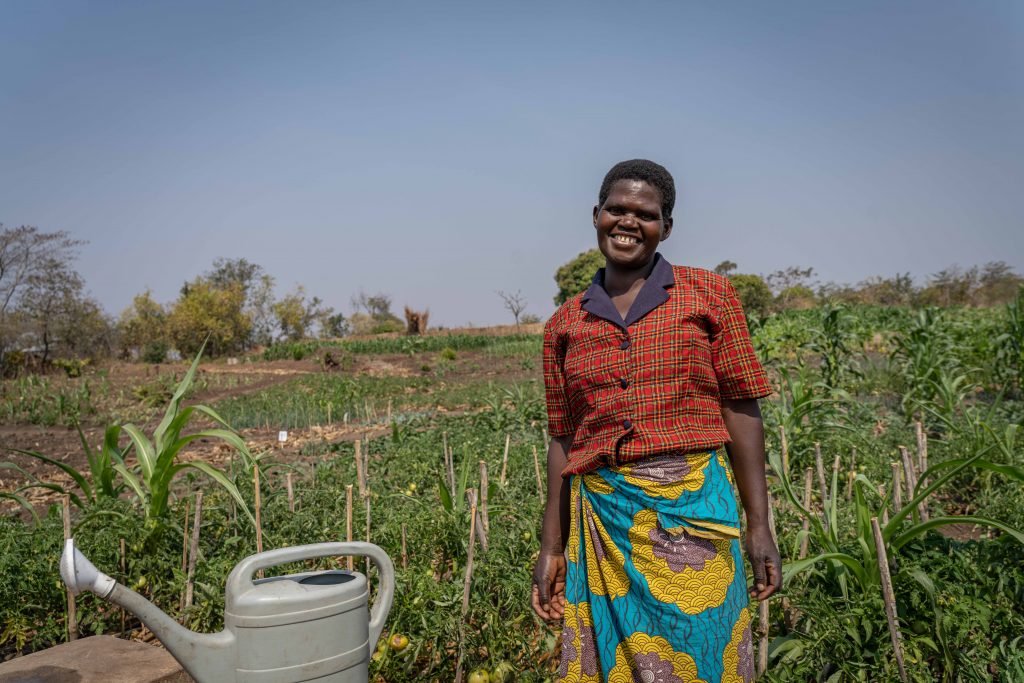Producing more food, eating good food
“I used to rely on Ganyu to feed my family, now I am the one employing people”
Idrissa Dyless has seen a change in his community. “We have better interaction with extension farmers, better knowledge of hygiene, diet diversity and improved techniques of farming. On top of that, we hope that our irrigation scheme and honey making will bring more income to our families.

For decades, Malawi has been experiencing devastating natural disasters including floods, dry spells, and pest outbreaks. These disasters have destroyed people’s livelihoods fueling the vicious cycle of hunger in the process. In response to this, in 2019, the UK Government contributed MK 57.2 billion (£59 million) to a multi-year joint programme to strengthen the resilience of 1.2 million vulnerable people against climatic shocks.

In Kakhobwe irrigation scheme in Balaka, Diana Adamu has planted cash crops. “I used to receive humanitarian assistance during lean season responses. Now I am trained in making compost manure and Climate-Smart Agriculture. I planted diverse crops like turnips, onions and tomatoes and I have sold some already.
This Government-led joint programme, known as Promoting Sustainable Partnerships for Empowered Resilience (PROSPER), aims to support 1.2 million people living in extreme poverty and hunger in the four districts of Balaka, Chikwawa, Mangochi and Phalombe. The programme is implemented by a large consortium of partners including the United Nations (FAO, UNDP, UNICEF, WFP), and NGOs and private companies.
Alan Chigwenembe planted cabbages, onions, tomatoes and other crops. “We are trying to help each other. My role is to get traders to come to the scheme, so participants fetch better prices.”
Idrissa adds “I used to rely on Ganyu to feed my family, now I am the one employing people to work with me in my fields. In 2016, I was harvesting 7 bags of 50kg of maize. Last year, I harvested 30. I only have 1 and 1/2 acre of land but with the cash I got, I was able to make some savings and buy quality inputs for my farming. On top of it, I learned apiculture and in my first harvest in June 2020, I got 22kg of honey which I sold at mk 44,000 and more is coming.”
PROSPER aims to improve vulnerable people’s ability to adapt to climate change through various interventions such as diversified agricultural production, improved productive assets and enhanced access to weather information, among others. The programme also aims to increase access to finance and markets and support an enabling environment for small-scale enterprises to improve livelihoods of marginalized groups in line with Malawi’s National Resilience Strategy.
Despite constraints induced by the COVID-19 outbreak, PROSPER partners are continuing to work in the field to support vulnerable farmers, adjusting the interventions in line with Government recommendations.






One Comment